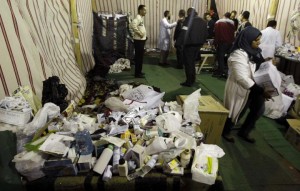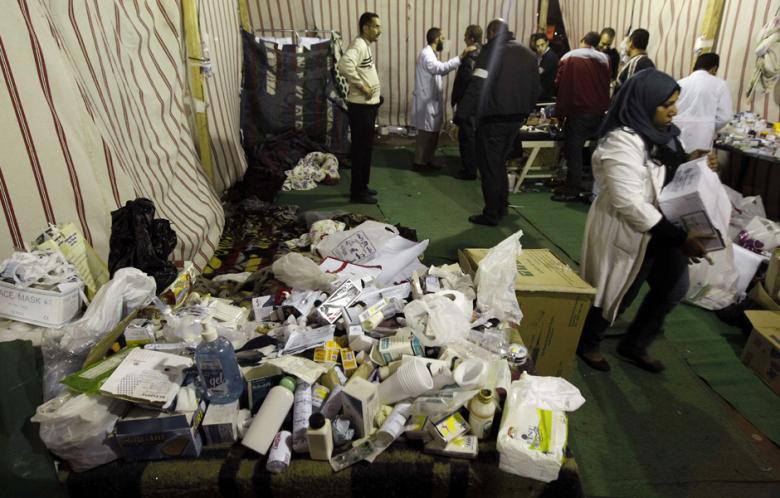
Members of the Egyptian Medical Syndicate are considering arming doctors as a “last resort” if the Egyptian government is unable to provide adequate security to hospitals.
When asked about the possibility of arming doctors, medical syndicate board member Dr Ahmed Lotfy said, “We would consider it a last step to arm doctors if the Interior Ministry cannot provide adequate security.”
On Tuesday, Cairo’s Al-Qasr Al-Eini Hospital shutdown its emergency room after gunmen entered and attacked doctors and patients.
The attack was the continuation of a feud between two families from the Bulaq Al-Dakrour area of Cairo which had earlier seen two patients admitted to the hospital. One of the patients died shortly after being admitted to hospital from a gunshot wound to the head.
During the incident patients and hospital staff in the hospital’s reception were robbed and beaten, leaving many injured.
Employees at the hospital and the medical syndicate have called for the military to guard the hospital until a sustainable security plan can be put together to safeguard employees and patients. The hospital is centrally located downtown near the heavily guarded Interior Ministry and other key government buildings closely patrolled by Central Security.
Assaults and riots have become frequent at hospitals across Egypt, most recently at Mansura International Hospital where emergency rooms were attacked repeatedly over a 48-hour period. Last week several other hospitals in the Dakahleya governorate were also attacked.
While thugs and thieves are thought to be responsible for some attacks, others are said to be by individuals desperate for medical care for themselves or loved ones.
In light of Tuesday’s events, the Medical Syndicate demanded that the Ministry of Interior provide police for hospitals, especially emergency rooms that are particularly vulnerable to break-ins by unauthorised personnel. The syndicate has also submitted a request to the office of the president for the removal of General Mohamed Ibrahim from his post as head of the Interior Ministry.
The request additionally urges the Interior Ministry to create a security division specifically dedicated to providing sufficient security to hospitals and their employees.
The syndicate has assembled a series of complaints involving poor security in hospitals and intends to continue to file more complaints as they come to light.
Over the past month, doctors working at hospitals across Egypt have also been striking in response to workplace security incidents.


